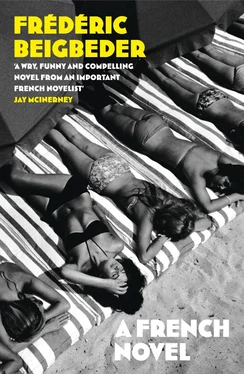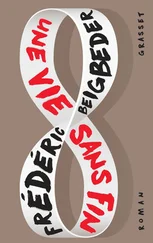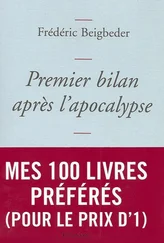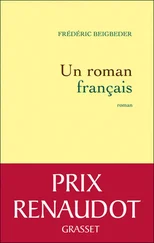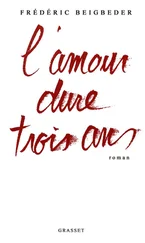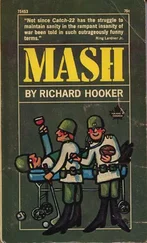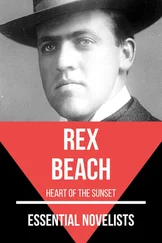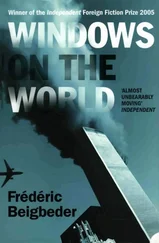I was a good boy, who meekly trailed around after his mother in her peregrinations, and squabbled with his elder brother. I am one of the mass of non-problem children. Sometimes, I am gripped by the fear that perhaps I remember nothing because there is nothing worth remembering. My childhood might have been a long string of empty, dreary, dismal days, as monotonous as waves on a beach. And what if I remember all there is to know? What if the opening act of my existence has no vivid moments? A sheltered, cosseted, privileged childhood without a whit of originality or depth – what would I have to complain about? To be spared misfortunes, tragedies, bereavements and accidents is surely a stroke of luck in the making of a man. This book would then be an inquiry into the dull, the futile, a speleological journey into the depths of bourgeois normality, an account of French banality. All happy childhoods are alike; perhaps they do not warrant being remembered. Is it possible to put into words all the phases that a small boy was doomed to experience in Paris during the Sixties and Seventies? I would love to tell the story of how I was merely a deduction in my parents’ annual tax returns.
My only hope, as I embark on this diving expedition, is that writing can rekindle memory. Literature remembers what we have forgotten: to write is to read within oneself. Writing reawakens memory; it is possible to write as one might exhume a body. Every writer is a ghostbuster , a phantom-hunter. Curious phenomena of involuntary recollection have been observed among a number of famous novelists. Writing possesses a supernatural power. One may start writing a book as though consulting a magus or a marabout. Autobiography exists at the crossroads between Sigmund Freud and the famous astrologer Madame Soleil. In his 1969 article ‘What is the Purpose of Writing?’, Roland Barthes states that ‘writing … fulfils a task whose origin is indiscernible’. Might that task be the sudden return of a forgotten past? Proust, his madeleine, his sonata, the two loose paving stones in the courtyard of the Hôtel de Guermantes which raise him up ‘towards the silent heights of memory’? Hmm, so, no pressure then. I’d rather choose a less illustrious but more recent example. In 1975, Georges Perec begins W, or the Memory of Childhood with this sentence: ‘I have no childhood memories.’ His book is filled with them. Something mysterious happens when we close our eyes to summon up the past: memory is like those sake cups offered in some Japanese restaurants, where a naked woman gradually appears at the bottom, and disappears as soon as the cup is drained. I see her, I gaze at her, but the moment I get close, she vanishes: my lost childhood is like that. I pray that some miracle will happen here, that my past will slowly develop in this book like a Polaroid. To quote myself, if I may be so bold – and in an autobiographical text, to try to avoid navel-gazing would be to add absurdity to pretension – this curious phenomenon has already manifested itself. In 2002, while I was writing Windows on the World , a scene suddenly appeared from nowhere: a cold winter morning in 1978, I am leaving my mother’s apartment to walk to school, my US schoolbag on my back, avoiding stepping on the cracks between paving stones. My mouth spewing plumes of condensation, I am bored to death and have to make an effort of will not to throw myself under the number 84 bus. The chapter closes with this sentence: ‘I never escaped that morning.’ The following year, the last page of L’égoïste romantique evokes the smell of leather in my father’s English cars, which as a boy I found nauseating. Four years later, while writing Au secours pardon , I revelled in the memory of a Saturday night spent in my father’s duplex apartment, where my slippers and my blushes seduced several Scandinavian models who were listening to Stevie Wonder’s orange double album. At the time, I attributed these memories to fictional characters (Oscar and Octave), but no one believed they were made up. I was attempting to talk about my childhood, without really daring to.
After my parents’ divorce, my life was cut in two. On one side, maternal moroseness; on the other, paternal hedonism. Sometimes the moods were reversed: the more my mother got back on her feet, the more my father immured himself in silence. My parents’ moods: the communicating vessels of my childhood. The word vessel also conjures the image of a ship run aground. I clearly had to build myself on shifting sands. For one parent to be happy, it was better if the other was not. This was not a conscious battle; on the contrary, I never saw the slightest hint of hostility between them, yet this pendulum swing was all the more implacable for the fact that they both kept smiling.
On 28 January 2008, the evening had started out well: dinner washed down with grands crus , then the usual bar crawl through dimly lit watering holes, the shots of coloured flavoured vodkas: liquorice, coconut, strawberry, mint, curaçao, downed in one; the shot glasses, black, white, red, green, blue, the colours of Rimbaud’s poem ‘Vowels’. Riding along on my moped, I hummed the Pixies’ ‘Where Is My Mind’. I was dressed up as a schoolboy, wearing suede cowboy boots, with unkempt shoulder-length hair, cloaking my age in my beard and my black raincoat. I have indulged in such nocturnal excesses for more than twenty years; it is my favourite hobby, the sport of grown-ups who refuse to grow up. It’s not easy being a child trapped in the body of an amnesiac adult.
In Proust’s Sodom and Gomorrah , the Marquis de Vaugoubert wants to look ‘young, virile and attractive, though he could see and no longer dared to peer into his mirror to inspect the wrinkles solidifying around a face whose many charms he would have wished to preserve’. As you can see, the problem is not new: Proust used the name of the château that belonged to my great-grandfather Thibaud. A mild state of inebriation began to envelop reality, to temper my speed, to make my childish behaviour seem acceptable. A new law had been passed by the republic a month previously forbidding smoking in nightclubs, so a crowd had gathered on the pavement along the avenue Marceau. I was a non-smoker expressing solidarity with the pretty girls in patent-leather pumps who huddled around the proffered cigarette lighters. For a second, their faces were lit like a painting by Georges de la Tour. I was holding a glass in one hand, using the other to cling to friendly shoulders. I kissed the hand of a waitress still waiting for a part in a major motion picture, pulled the hair of the editor of a magazine with no readership. An insomniac generation gathered on Monday nights to stave off the cold, the loneliness, the financial crisis already looming on the horizon – God knows, there’s no shortage of excuses to get plastered. There was also an actor who dabbled in art-house cinema, a few out-of-work girls, bouncers both black and white, a singer on his way out and a writer whose first novel I had published. When the latter took out a white wrap and began to tip powder onto the bonnet of the gleaming black Chrysler parked in the access road, no one protested. Flouting the law amused us: we were living in an era of Prohibition, it was time to rebel like Baudelaire and Théophile Gautier, Brett Easton Ellis and Jay McInerney, like Antoine Blondin, who was rescued from a police station by Roger Nimier disguised as a chauffeur. I was meticulously cutting the white crystals with a gold credit card while my writer friend bitched that his mistress was even more jealous than his wife, something that he considered (and as you can imagine, I was nodding vigorously in agreement) an unforgivable lapse of taste, when suddenly a strobing light made me look up. A two-tone car pulled up in front of us. On the doors were strange blue letters underscored by a red stripe. The letter ‘P’. Consonant. The letter ‘O’. Vowel. The letter ‘L’. Consonant. The letter ‘I’. Vowel. I thought of that TV game show, Countdown . The letter ‘C’. Oh, fuck. The letter ‘E’. Doubtless these widely spaced letters had some hidden meaning. Someone wanted to warn us of something, but what? A siren began to wail, the blue light whirled as on a dance floor. We both scarpered like rabbits. Rabbits in slim-fitting jackets. Rabbits in ankle boots with slippery soles. Rabbits unaware that in the 8th arrondissement 28 January 2008 was the first day of the hunting season. One of the rabbits had even left his credit card with his thermally moulded name lying on the bonnet of the car, while the other did not even think to throw away the illicit packets hidden in his pockets. This dawn marks the end of my endless youth.
Читать дальше
